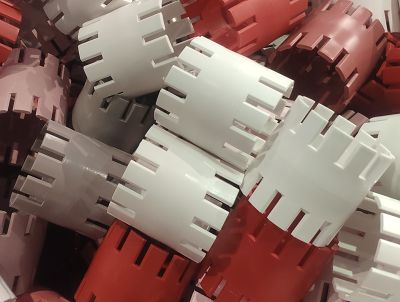Material Hub > Materialien
Materialien
-
Kategorie ThermoplasteEinsatztemperatur -200 – 80 °CDichte 1.007 g/cm³
-
Kategorie ThermoplasteEinsatztemperatur -200 – 105 °CDichte 1.21 g/cm³
-
Kategorie ThermoplasteEinsatztemperatur -200 – 80 °CDichte 0.971 g/cm³
-
Kategorie ThermoplasteEinsatztemperatur -100 – 85 °CDichte 0.99 g/cm³
-
Kategorie ThermoplasteEinsatztemperatur -200 – 80 °CDichte 0.94 g/cm³
-
Kategorie ThermoplasteEinsatztemperatur -269 – 80 °CDichte 0.961 g/cm³
-
Kategorie ThermoplasteEinsatztemperatur -250 – 80 °CDichte 0.94 g/cm³
-
Kategorie ThermoplasteEinsatztemperatur -60 – 250 °CDichte 1.31 g/cm³
-
Kategorie ThermoplasteEinsatztemperatur < 260 °CDichte 1.31 g/cm³
-
Kategorie ThermoplasteEinsatztemperatur -50 – 100 °CDichte 1.41 g/cm³
-
Kategorie ThermoplasteEinsatztemperatur -50 – 100 °CDichte 1.41 g/cm³
-
Kategorie ThermoplasteEinsatztemperatur -50 – 100 °CDichte 1.41 g/cm³
-
Kategorie KunststoffbeschichtungEinsatztemperatur < 250 °CDichte –
-
Kategorie ThermoplasteEinsatztemperatur 0 – 100 °CDichte 0.9 – 0.92 g/cm³
-
Kategorie ThermoplasteEinsatztemperatur -210 – 260 °CDichte 1.5 g/cm³
-
Kategorie ThermoplasteEinsatztemperatur -210 – 260 °CDichte 2.9 g/cm³
-
Kategorie ThermoplasteEinsatztemperatur -210 – 260 °CDichte 2.1 g/cm³
-
Kategorie ThermoplasteEinsatztemperatur -210 – 260 °CDichte 0.9 g/cm³




